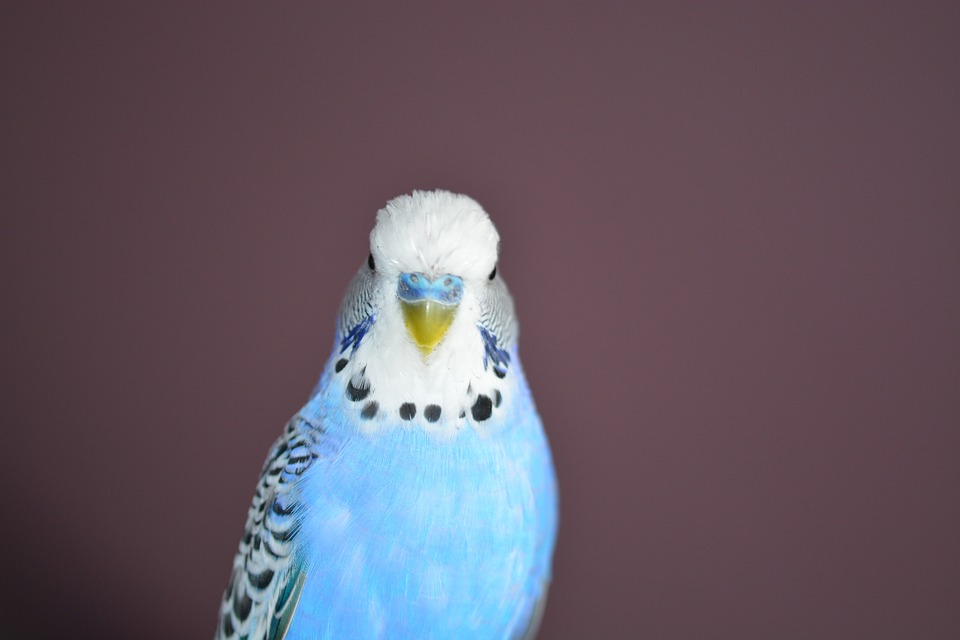Ten years ago, I went with my brother Dave and my sister-I-love Sara to meet their new baby Great Dane.
The colors of this website are the colors dogs and cats can see.
Dave said, “Find pictures you like.”
“Why?” I asked. “What’s our theme? What will we do with them? What kind of pictures?”
“Just bring me some damn pictures!”
This website has been several months in the making, several years I suppose.
Hi. My name is Shawn Finch... (continued)
Dedicating a newsletter to hamsters was so fun, I decided to do another…this time dedicated to birds.
Since the start of my career as um, Dr. Finch, the comments have ranged from “Do you see birds? You should! Get it?” to that of my most recent bird-owning client, who, after a wellness appointment with his new baby budgerigar, said, somewhat dubiously, “Well, with a name like that, let’s hope you’re a good bird doc.” I just laughed and said “Yes, let’s hope!” I must be ok… or lucky… his bird is doing fine so far.
My first avian patient was a budgerigar whose owner had called five other veterinary hospitals, and none of them would see her hurt bird. For the record, I now know of several vets in Omaha who see birds, and they are all very good. However, she was panicked and calling through the Yellow Pages, which can be hit or miss. Anyways, my first reaction was to also say I don’t see birds. But the bird was hurt…and the owner was crying…and no one else would see them. And I do love budgies. So I had them come in.
On presentation, the little bird was hanging from the top of her cage from…a paperclip. Gross. This wasn’t an avian case. This was a hardware case—more my husband’s area of expertise than mine.
What would Russ do?
Stuck wire…needle nose pliers…similar to…hemostats!” I grabbed a pair of hemostats and the bird and gently pulled the paperclip out of the scared budgie’s mouth. It had been a homemade toy hanger. She had ignored the toy, bitten the paperclip, and it had gone through the bottom of her mouth and out her neck. I finished the exam…nothing as dramatic as a paperclip impaling, the rest of her looked like a normal budgie. I treated her pain and sent her home on budgie-sized antibiotics to guard against infection.
Then I sat down and shook for a good half hour as I thought through how many vital structures are in the very small neck of a bird. Amazingly, the wire must have missed every single one of them, because she lived to play with safe, paperclip-less toys, and I have gone on to have many, many avian cases, but none as scary as my first one.
In fact, they have by and large been very fun cases. If you are a pediatrician, maybe you can relate to how fun it is when you are used to patients who will look at you with their cute little faces, but not answer any of your questions, to then having a patient actually answer you in plain English. It is a nice change of pace, even if my patients are only mimicking what I just said. Sometimes, on a slow day, I will talk my clients into staying longer just so I can hold their bird and finish our conversation.
I can honestly say that I have yet to have a patient of any species who was not cute (yes, even the hairless dogs and rats), but the scarlet macaws, rainbow-colored gouldian finches and bright green conures are way up there for breath-taking beauty.
In fact, I always save a few feathers from wing trims for my daughters. Many of their stuffed animals, thanks to gorilla glue and contributions from my gorgeous patients, are now angel stuffed animals.
And the personalities! Every bird I have met seems to have an amazing sense of humor just under his or her little feathered surface. One of my best friends is my Mom and Dad’s twelve-year-old budgie, Pete, Pete, the Parakeet. (Mom calls him Pete.) Pete, Pete, the Parakeet knows over thirty words and phrases, and I swear he often uses them in context. My favorites are “Gimme a kiss,” “Whatcha doing?” and “Here Ernie, Ernie.” (Ernie is my parents’ tiny poodle, another good friend of mine.) Pete, Pete, the Parakeet has had two bouts of kidney failure, but is presently healthy and working on his next phrase.
Birds seem to bring me beyond my hospital walls better than any other patients. I do house calls for Pedro, a cockatiel who lives in the exercise room of Lakeside Village. While I am there I get to visit my Mother-in-Law Karen who works there, my friends who work with Karen—Paula, Tanya, Michelle and the rest, and the residents—my great aunt-in-law Aunt Rachel, Pedro’s best friend Catherine, our real estate agent’s Dad, my daughter Abby’s “adopted” Grandma, whose cat we went to check on together, and many others. For the severe introvert that I am, Pedro has brought me a long ways.
I would contend that some sorts of crazy are good.
Dear Guy Shopping at Menard’s,I just wanted to check back with you after the note I left on your windshield the other day.
First published on the Riley and James website
by Shawn Finch, DVM
Age children should be before they own a reptile: 6.
Age children should be before they have primary care of a pet: 12.
Age children should be before the family owns a pet prone to aggression: 18.
Age I was married: 24.
Age I had my second child: 30.
Favorites…
Favorite dog name: Joey Cupcake.
Favorite cat name: Mr. Narwhal.
Favorite rabbit name: Junie B. Jones.
Suggestion for their new bunny’s name: Judy Moody.
Dogs or cats: both.
Being a vet or being a Mom: being a Mom.
Crabby owners or crabby pets: crabby pets.
Treating or preventing: preventing.
Hamsters or pit bulls: pit bulls.
Dogs I have disliked: 0.
Cats I have disliked: 0.
Number of years I have been a vet: 8.75.
Number of years I have been a mom: 7, including gestation.
Number of crabby owners I have had to deal with lately: 1.
Number of crabby pets: 10 maybe? But if you have read “Will Benji be there?”you understand why it was not their fault!
Primary guideline for scheduling appointments: No crabby owners, crabby pets are just fine.
Coworkers who stand by that with me because it makes work very fun: 5 of 5.
Coworkers on my list of favorite people: 5.
Percent of pets who come in for prevention-related reasons: 90.
Percent of pets who come in for treatment of disease: 10.
Hamsters who have bitten me: 3.
Percent of hamsters who have considered biting to thank me for their great care: 98.
Pit bulls who have bitten me, or even tried: 0.
How these statistics, excluding the hamster bites, make me feel: happy.
Average lifespan of a dog: 12 years.
Oldest dog I have known: 17. Breed: Poodle.
Average number of years that are added to a dog’s life when fed properly: 2.
Average lifespan of an indoor cat: 13 years.
Average lifespan of an outdoor cat: 3 years.
Oldest cat I have known: 21.
Breed: Siamese.
Indoor or outdoor: Outdoor.
Average lifespan of a betta fish: 1 year.
Age of our betta: 3.
Secret of Fish’s youthful beauty: oxygen.
Most common cause of death in pocket pets and exotics: improper diet or housing.
Amount of Internet information on pet care that is accurate: 50%, I would guess. But I still maintain that it is a great place to start.
#1 cause of death in cats and dogs: euthanasia due to behavior issues.
#2: euthanasia due to overpopulation.
Most common signalment of a dog with cancer: senior patient who has had excellent care and grown old enough to develop cancer.
Most common issue owners who have pets with cancer deal with: guilt.
Stages of grief owners go through at the loss of a pet: 5.
Percent of dogs and cats over 2 with dental disease: 80.
Frequency of dental cleaning recommended for average adult pet: once a year.
Average lifespan of guinea pigs: 5.
Age of Piggy: 3.
Most common vitamin deficiency in guinea pigs: C.
Animals that do not make vitamin C: Primates and guinea pigs.
Amount of vitamin C in Piggy’s daily supplement: 25 mg.
Number of guinea pig diets with adequate vitamin C: 0.
Number of guinea pig liquid supplements with adequate vitamin C: 0.
Diseases Piggy has had: 2.
Diseases related to vitamin C deficiency: 0.
Most common vitamin deficiency in birds: A. Most common vitamin deficiency in reptiles: D.
More favorites…
Favorite rodents for children: rats and guinea pigs.
Favorite rats from children’s literature: Nicodemus and Templeton.
Favorite mice from children’s literature: Mrs. Frisby, Herman the Great and Ralph.
Number of favorite dog breeds I have: 23.
Number of least favorite dog breeds I have: 2.
Number of breeds I have mixed feelings about: 4.
Favorite canine from children’s literature: Carl.
Other favorites: Ann and Dan.
Number of favorite cat breeds: 1.
Number of least favorite cat breeds: 0.
Favorite feline from children’s literature: Socks.
Your New Year's Resolution, if I can be so bold as to make it for you, is to never have to deal with heartworm disease in Real Life.
First Published on The Riley and James Website
by Shawn Finch, DVM
I held onto this newsletter for several weeks until today, when I had to euthanize a precious pet for a grieving owner. The only way this sad ending to such a horrible disease made any sense was to picture the bunny hopping, once again healthy and young, from her owner’s arms into the arms of God.
You recall from my first newsletter “I love to be boring.” I love helping owners maintain the health of their pets. Yet, inevitably we end up in the exam room or living room or outdoors, making end of life decisions…hopefully with an old pet, full of years. However, sometimes it is a pup with a rare disease, a kitten who has had an accident, a pocket pet who is here for only a matter of months. Most of you have been through the heartbreak. We live 80 years or so, they live 10 years or so… that’s a lot of sadness for animal lovers like us.
Almost without fail, a question comes up that I am not qualified to answer. I was not taught the answer in veterinary school. I was not taught the answer in church. But I need the answer as badly as you do, and I am absolutely sure of my conviction. So please work through this with me. Do not be offended or afraid to disagree. I will just walk you through my heart struggles and hope it helps you answer the question for yourself.
Everyone has asked at some point in their life, “Do pets go to heaven?” and I can tell you when a seven year old asks, almost in a panic, before you are about to euthanize his friend, a shoulder shrug will not suffice. When Russ and I held our first dog Benji, knowing what a rare, horrible, untreatable heart condition he was suddenly dying of, I had to be able to tell Benji that it was ok to let go–not for his own sake, but for mine.
Do pets go to heaven? I can tell you emphatically “YES!” Of course they do. Do you want to argue the philosophical questions of whether or not they have a soul? Whether heaven exists Whether this is all there is? I will be happy to, but debate is not my strong trait. You may have guessed, I lean a tiny bit toward the emotional.
However, I will try to move on to logic.
1) Animals are not separated from God by sin. There is no such thing as a “bad dog,” or a bad creature of any kind. Not really. They do what they instinctively know or have been conditioned to do. They are not born with a sin nature, as we are.
2) Animals have inherent worth. Every animal is actively created by God. If we have to back up to “Does God exist?” or “Is the creation account of Genesis true?” we’d better talk in person! If we agree on these, and that God is good, I believe we can surmise that God still has his hand in active creation in the world. Therefore, even if Benji had not been our pet, but a Wild Mountain Poodle, he would still be important to God, and thus worth keeping beyond this world.
3) Heaven is perfect. Jesus has gone to prepare a place especially for us there.
4) The Bible says that animals are there.
5) Do you think heaven is not big enough??
If, when we get to heaven, we do not see OUR beloved pet, we WILL see our Savior, and be so overwhelmed, everything we wondered about will be outshined, or make perfect sense or both.
I hope with all my heart that this is a happy time for you, that you have your pet in your lap at the computer, or are maybe deciding on a pet to adopt when the time is right. When you do have to make the difficult decision to end a friend’s suffering, or have to go through the pain of having a pet pass away, I want you to have peace. Peace that he or she will be with you when you get to heaven. At least peace that ultimately, everything will be ok.
More often, it is not the seven year old who stops me before euthanasia to ask if their friend will be in heaven. It is the adult, who asks and then says with his or her eyes, “I don’t care what you believe or whether it’s true. I need you to say ‘Yes.'”
Now you know…I have not told you “yes” in your saddest time to make the grief process less painful, though I hope it has. I have not told you “yes” because I know you need desperately to hear that everything is going to be ok. I have told you “Yes, your friend will be there” because I believe with all my heart it is true. I BELIEVE our pets will be with us in heaven, and I KNOW God is good, and really, if we have that assurance, everything will be ok.
I love to educate pet owners on disease prevention…how to help their pet be the very healthiest he or she can be for a very, very long life.



































